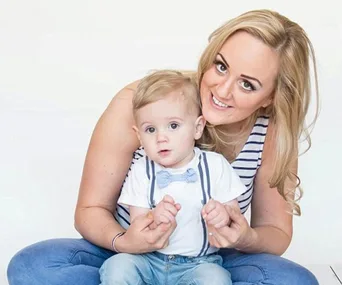Amber Rose Cliff was diagnosed with cervical cancer four years ago when she was just 21. Tragically, she died earlier this week.
While her death comes too soon, and brings her friends and relatives unimaginable sadness, it is her family’s claims that she was denied cervical cancer screening tests that is garnering worldwide attention.
As reported by the Daily Mail, she is believed to have been told that the reason for this is because of the Pill, hormones as a result of her age or a water infection. When Ms Cliff asked for a smear test, her family say she was told she couldn’t have one because the NHS only offer them to women who are 25 years and older.
Three years on, Ms Cliff decided to seek another opinion and sadly discovered that she in fact had cervical cancer.
Her heartbroken brother, 27-year-old Josh, believes if she’d had the test sooner, his little sister could still be alive.
“If Amber had a smear test sooner then the cancer might have been caught in time, and we wouldn’t have lost her like this,” he says.
“She asked for smear tests multiple times, but was told that she couldn’t have one because she was too young.”
“We decided to get her one privately to put her mind at ease – but when we got the results it did the opposite.”
Similar to the UK’s laws that women under 25 aren’t eligible for a cervical cancer screening test, the new cervical cancer test rolling out in Australia as of May 1 will see women across Australia younger than 25 no longer able to get a Pap smear test.
“From next year onwards, Australian women above the age of 25 will be urged to get a cervical cancer screening once every five years, in place of the every-two-year Pap smear,’ Dr Fielder tells us.
“The screening is no longer offered to women under 25 routinely.”
As Dr Fielder asserts, the reason this screening is now moving to a five-year check-up time is very much evidence-based.
“We haven’t just decided to do it every five years,” she says. “The reason it’s changed is due to studies showing that because we are vaccinating women and men, and boys and girls at school, we are seeing a lot less of this virus.”
“Basically, we are seeing that the virus and abnormal Pap smears are on the decline, and because we are now offering a much more superior test – and that is the HPV DNA test – if you come back negative for that, your chance of developing an abnormal Pap smear in less than five years is very low.”
“According to studies, 80 per cent of women will have HPV at some time in their lives, and most types of HPV do not cause any problems,’ Dr King adds.
But for those who are under the age of 25 and would like to have a cervical cancer screening, “it can be offered, but we have to have a reason,” says Dr Fielder.
“For example, if a woman has had a very early sexual activity or who has been sexually active from a young age, or in circumstances when a woman has experienced sexual abuse, but I think the test can be offered to any woman who is worried, but it would be an issue of Medicare funding.”
“Every woman is entitled to have a conversation with their GP, and is absolutely entitled to have more testing if she has her own circumstances, or if she is willing to pay for more frequent testing.”
If you want to learn more about the Cervical Cancer Screening, contact your local GP or gynaecologist.



